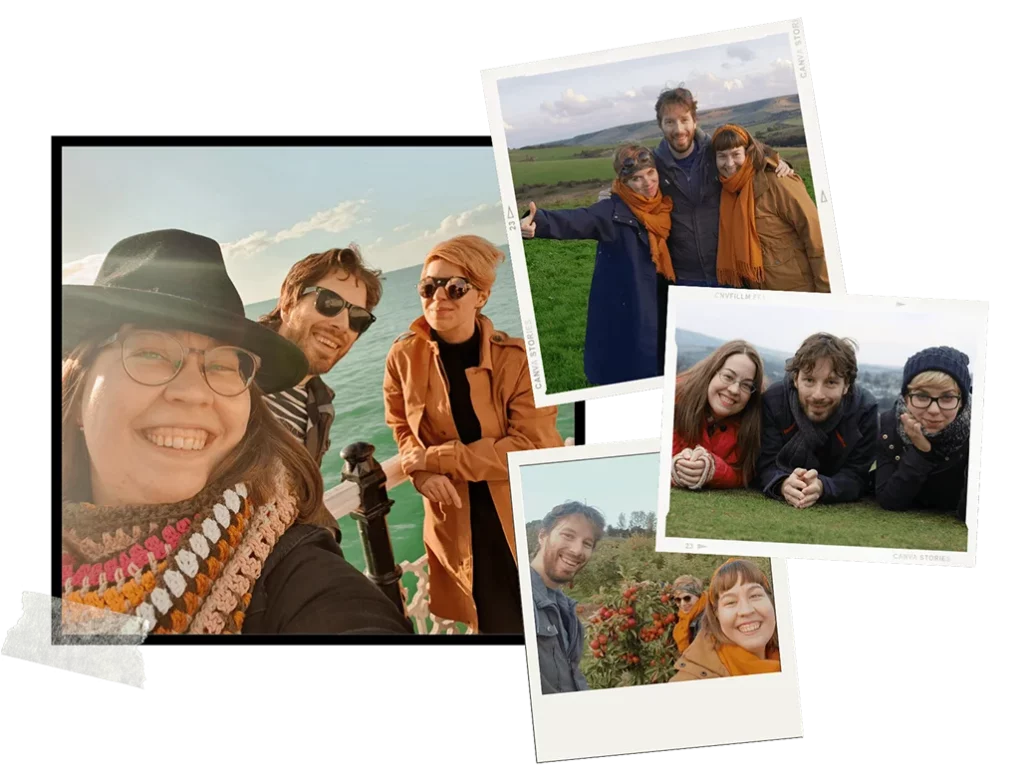The past 30 years have brought huge advances to the understanding and perception of neurodivergent conditions.
This is all thanks to breakthrough work by neurodevelopmental researchers, therapists, social scientists, mental health professionals, disability activists, as well as neurodivergent adults claiming their space in the conversation about them.

The result is a slow, but steady shift:
- from “disorders with symptoms” to conditions with traits, even neurotypes
- from “unrelated illnesses” to interconnected, overlapping trait systems
- from a focus on “what it looks like from the outside” to what it feels like on the inside
- from standardised behavioural “treatments” to a personalised combination of medical, therapeutic, social, and accommodation support
- from one-size-fits-all half-solutions to individual, needs-based approaches
- from chasing imaginary “cures” to improving systems, environments, practices and tools
- from forcing self-suppression and hiding towards accommodating neurodivergent needs
Sounds great!
…on paper.
But there’s one big problem.
The big systems aren’t catching up.
Gaps in knowledge mean droves of adults – especially women and minorities – go underdiagnosed.
Those hoping for a diagnosis wait 4-7 years for one.
Most support available is stuck with neurotypical frameworks we now know do not work or are actively detrimental to neurodivergent people.
All this wastes time & money, and leaves people in worse mental health states than when they started.
We started Weirdly Successful because we don’t want you to have to wait another 30 years to start feeling like you’re seen and listened to like a human being.

We’re a 100% neurodivergent group of educators, each of us with a different combination of dishes from the Great Neurodivergent Buffet Table of ADHD, Autism, SPD, and all the rest.
Because when it comes to understanding what growing up and living as a neurodivergent person feels like, there’s no substitute for lived experience.
There is deep connection and understanding to be found there when we see something we know but is hard to put in words, validated through someone else who shares that feeling, shares that story.
That said, when it comes to finding what practical adaptations will remove at least some of the weight from your shoulders of navigating a world made for neurotypical people, someone else’s lived experience is no longer enough. No two neurodivergent people are exactly the same, with exactly the same difficulties, exactly the same needs, and exactly the same adaptations for them.
You know you’ve found yours when you can go “aaah…”
This is why we’ve spent decades developing frameworks that set up the tentpoles, but the strategies within are flexible.
And that’s why we keep up with the cutting edge of neuroscience findings, consult with experts whenever the opportunity arises, and keep on top of therapists’ field experience with what approaches actually work with neurodivergence.
The lifetime bridging theoretical findings with expert advice, practical implementation and lived experience puts Weirdly Successful in the perfect position to accelerate understanding and implementation of the new neurodivergence paradigm.
And since ADHD heavily overlaps with Autism and OCD, we don’t just care about ADHD. We can look at your traits holistically, whether you meet the diagnostic criteria or not.
We not only have decades of lived experience, we’re also trained in neurodivergent conditions and keep up-to-date with the latest research.
We’ve spent decades developing tools and strategies to help people like us and like you, so you can reach and maintain a life you truly enjoy living as your own self.
No hustle, no shame, no masks.
Do you need support?
Do you want to support someone?
Let’s start talking.

